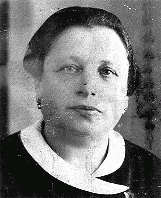You searched for: 金融游戏理财系统定制开发【TG���������@EK7676】平台包网搭建金融游戏理财系统定制开发【TG���������@EK7676】平台包网搭建39dbZbaSb9
<< Previous | Displaying results 571-580 of 619 for "金融游戏理财系统定制开发【TG���������@EK7676】平台包网搭建金融游戏理财系统定制开发【TG���������@EK7676】平台包网搭建39dbZbaSb9" | Next >>
-
Genya Rotenberg
ID CardGenya and her brother, Nahum, were raised by Jewish parents in Lodz, Poland's second-largest city and an industrial center. Before the war, one-third of Lodz's inhabitants were Jewish. Genya's parents placed emphasis on their children's education. 1933-39: In 1939, when Genya was 9, the Germans occupied Lodz. After that, it was forbidden for "Jews, Gypsies and dogs" to be in public places. Since Jews weren't allowed to go to school, her parents arranged to tutor her secretly at home, but she couldn't keep…
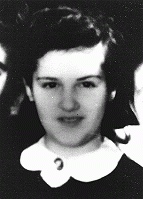
-
Adela Low
ID CardAdela, known as Udl to her family, was one of four children born to a Jewish family in the Polish town of Ulanow. Her father was a landowner and cattle merchant, transporting calves from the Ulanow area for sale in other towns in the region. From the age of 3, Adela attended a private religious school for girls where she learned Jewish history and Hebrew. At age 7 she began public school. 1933-39: Adela came from a charitable family; when her mother baked challah, a special bread for the Jewish Sabbath,…
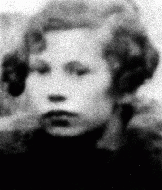
-
Edit Gruenberger
ID CardEdit was the second of three children born to Hungarian-speaking Jewish parents in the city of Kosice in the southeastern part of Czechoslovakia known as Slovakia. She grew up a Czechoslovak citizen. As a young girl, she attended a Jewish elementary school. Her father was a tailor whose workshop was in the Gruenbergers' apartment. 1933-39: After Edit finished elementary school, she entered secondary school. The language of instruction was Slovak and Jews faced no discrimination until November 1938 when…
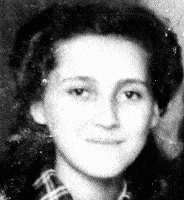
-
Herschel Low
ID CardHerschel was the oldest of four children born to a Jewish family in the Polish town of Ulanow. His father was a landowner and cattle merchant who transported calves from the Ulanow area for sale in other towns. Herschel attended a religious school from the age of 3, and started public school at age 7. 1933-39: Since Herschel was skilled with his hands, his father got him a job weaving reed baskets after he graduated from high school. Herschel was also a member of a Jewish youth organization, Benei Akiva,…
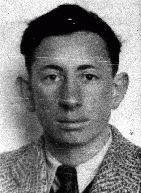
-
Shmuel David Bursztyn
ID CardRaised by Yiddish-speaking, religious Jewish parents in the town of Pultusk in central Poland, Shmuel married in the late 1890s and moved with his wife, Gisha, to the city of Warsaw. Shmuel owned and operated a bakery on Zamenhofa Street. In 1920 the Bursztyns and their eight children moved to larger quarters in a two-bedroom apartment at 47 Mila Street in the Jewish section of the city. 1933-39: By 1939 six of Shmuel's children were grown and on their own. Only his youngest son and daughter still lived…
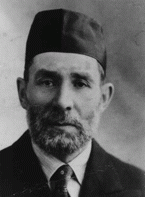
-
Gucia Grosfeld Frydmacher
ID CardGucia was born to middle-class Jewish parents in Radom, an industrial city known for its armaments factory, in which Jews were not allowed to work, and for a leather industry, in which many Jews were employed. Radom had a large and active Jewish community, and at home Gucia's family spoke both Polish and Yiddish. Gucia completed her schooling in Radom. 1933-39: As a young woman, Gucia was introduced to Benjamin Frydmacher, a young Jewish tanner from Lublin who occasionally came to Radom to visit his…
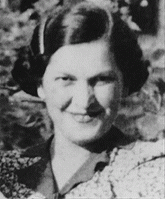
-
Jeno Brieger
ID CardJeno was born into a large, religious Jewish family in the village of Nagyhalasz in northeastern Hungary. The Briegers spoke Yiddish and Hungarian. After Jeno's mother died, his father remarried and the family moved to the town of Nyiregyhaza where his father owned and operated a hardware store. Nyiregyhaza had a Jewish population of 5,000. 1933-39: Jeno was the oldest son in a household of seven children. Nyiregyhaza was a rural town in which people still used horses and buggies. Jeno attended a…
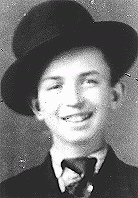
-
Gyula (Gyuszi) Brieger
ID CardGyula was also known as Gyuszi. He was born into a large religious Jewish family in the village of Nagyhalasz in northeastern Hungary. The Briegers spoke both Yiddish and Hungarian. After Gyula's mother died, his father remarried and the family moved to the town of Nyiregyhaza, where his father owned and operated a hardware store. Nyiregyhaza had a Jewish population of 5,000. 1933-39: Gyula was the second oldest son in a household of seven children. Nyiregyhaza was a rural town in which people still used…
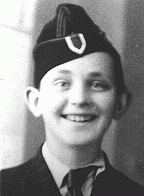
-
Bernard Krakauer
ID CardBernard was one of seven children born to a German-speaking, Jewish family in the small Moravian town of Mikulov in the central part of Czechoslovakia. The family later moved to the town of Hodonin where Bernard opened a dry-goods and clothing store. In 1899 he married Berta Koselova, and the couple had six children. During World War I Bernard served in the Austro-Hungarian army. 1933-39: In 1938 Bernard retired, and since none of his sons wanted to take over the business, Bernard sold it. He, his wife,…
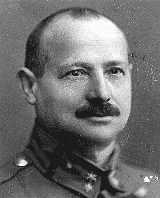
-
Berta Koselova Krakauerova
ID CardBerta was born to a Jewish family. Orphaned when she was a child, she was raised by her Uncle Poldi in Vienna. In 1899 she married Bernard Krakauer, a Jewish businessman from her hometown of Mikulov. As was the custom for orphans, Berta wore a black dress at her wedding. The couple settled in the town of Hodonin, where Bernard opened a dry goods and clothing store. They raised six children. 1933-39: With their children grown, Berta's husband retired in 1938. He sold the business and moved with Berta and…
